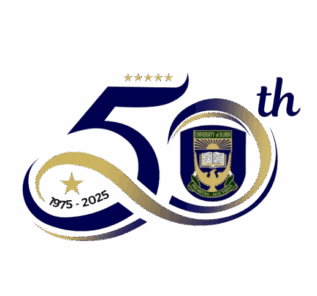By Mustafa Abubakar
The University of Ilorin 2025 Researcher of the Year, Dr AbdulGafar Fahm, has described his recognition as a call to deepen inquiry into how faith, ethics, and technology intersect in an increasingly digital world.
Dr Fahm, who disclosed this last Monday (October 27, 2025) in a chat with UNILORIN Bulletin, said he would continue to explore the intersection of Islamic ethics and digital transformation, focused on how Muslim societies in Nigeria navigate the moral, educational, and epistemological challenges of the digital age.
Dr Fahm, who teaches at the Department of Religions, said, “It was deeply humbling and gratifying. This award affirms years of patient scholarship, collaboration, and curiosity, reminding me that knowledge is both personal devotion and public service. The research is often a solitary endeavour, but such recognition by one’s institution is an energising reminder that the pursuit of knowledge contributes meaningfully to our collective academic mission,” he said.
He said that his groundbreaking research explores the intersection of Islamic ethics and digital transformation, focusing on how Muslim societies in Nigeria are responding to the moral, epistemological, and educational implications of technology. His work examines how online platforms are reshaping Islamic learning, religious authority, and ethical reasoning in the digital age.
“I have been exploring how classical principles such as adab (ethical conduct), niyyah (intention), and maslahah (public good) can guide responsible engagement in the digital space,” he explained.
He revealed that the recognition reflects a culmination of his academic contributions between 2021 and 2025, including high-impact publications in Q1 journals, leadership roles in collaborative projects, research grants secured, and the mentoring of graduate students.
“These efforts, both academic and administrative, were evaluated as part of the process that led to this recognition,” he said, adding that meaningful research outcomes go beyond citations to touching lives and institutions.
Dr Fahm said his motivation to study the ethical dimensions of digital life in Islam was inspired by observing how technology is rapidly transforming knowledge acquisition and religious discourse.
“As an Islamic ethicist, I became interested in how classical values could inform digital practice. The online world is not morally neutral. It requires frameworks rooted in spiritual discipline and communal good,” he explained.
On the delicate balance between tradition and modernity in research, Dr Fahm stressed that integration, not opposition, is key.
He said, “I grounded my research in the Qur’an, Hadith, and classical Islamic thoughts, but I also employ interdisciplinary tools such as digital ethnography, discourse analysis, and data-driven social research to interpret contemporary realities. Tradition provides the moral compass; modern methodology provides the analytical lens.”
Dr Fahm identified limited funding for humanities research, poor access to digitised manuscripts, and the challenge of situating Islamic Studies within global academic debates as major constraints confronting researchers in the field.
“The discipline must evolve to address fast-changing socio-ethical realities that classical frameworks did not anticipate,” he said, noting that continuous dialogue between Islamic scholarship and modern realities is crucial.
Dr Fahm commended the University of Ilorin for sustaining an environment that promotes research excellence.
“The University provides growing digital infrastructure, facilitates grants, and nurtures a vibrant community of scholars. Its emphasis on productivity, ethical excellence, and mentorship has been instrumental in my academic journey,” he said.
He also revealed that he is actively involved in international research collaborations linking Nigerian and European institutions.
“I am engaged in projects on Digital Pathways and Islamic Learning, examining Yoruba-Muslim communities, and I collaborate with colleagues in Germany and the UK on issues of religion, morality, and technology,” he said.
Dr Fahm, who currently serves as a LUCAS-LAHRI Virtual Visiting Research Fellow at the University of Leeds, United Kingdom, disclosed that, on ensuring his research transcends the academic environment, there is the need for impact-driven scholarship.
He said, “I engage policymakers, educators, and faith-based organisations. My research aims to inform ethical digital literacy programmes, contribute to peacebuilding, and guide youth engagement with technology. Scholarship should not end in journals; it should inspire responsible citizenship and social transformation.”
Looking to the future, Dr Fahm disclosed that his next line of inquiry will focus on how class, gender, and access shape digital religious engagement, building on his ongoing efforts to develop an Islamic framework for digital ethics suited to Africa’s knowledge landscape. Offering advice to emerging researchers.
He advised researchers to “be intellectually curious, methodologically rigorous, and ethically grounded. Let your research serve humanity. Remember that humility is the hallmark of true scholarship as research is service to knowledge, to community, and to God.”
